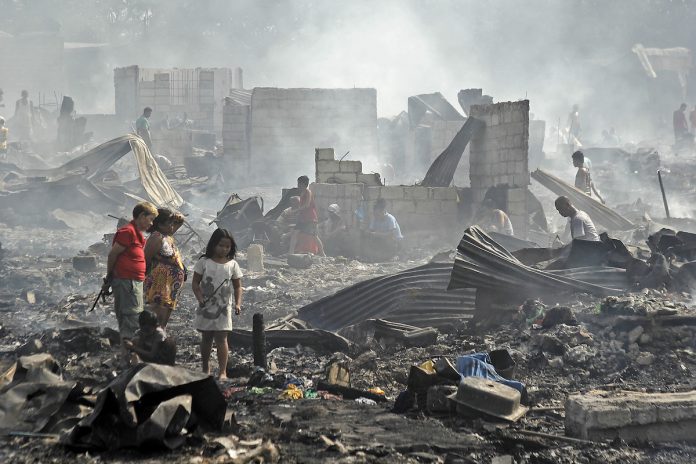Reflection for the 26th Sunday in Ordinary Time (Cycle C)
The prophets of history have consistently warned, even to the point of their own death, “Woe to those proud people, who live overconfident … you will be the first to go into exile.”
In today’s reading, our Lord is giving us a tale of two realities about an unnamed “rich man,” and a “poor man” called Lazarus. In the first “worldly” reality, the demonstration of social inequalities is clear: the “rich man” is preoccupied with daily feasting, rendering him unjustly indifferent to the plight of Lazarus, who is longing to be given even just scraps from the table of the former. It is a reality that is just as true today as it was in the time of the Christ. At this point in the story, our Lord seems to hint at the eventual reversal of their fortunes, because we are normally familiar with the names of advantaged and powerful people; while those who are disadvantaged and marginalized, are ordinary nameless faces obscured within our social milieu.
The second “otherworldly” reality underscores the reversal of their fortunes, which is implied to be the consequence from the injustice and lack of corrective actions in the first: the “rich man” is now suffering in “this place of torment,” not because of his incidental possession of wealth, but because of his continued indifference. He condemned himself to an ignominious eternity because of what he given his advantages, contemptuously ignored to do to alleviate the disadvantages of the other.
Hence, those who are “in comfort” are expected to uplift those “in agony” in this life. If they will not do so, their fortunes will be reversed in the afterlife, when those who will be blessed “in comfort” will not be able to do anything for those perpetually trapped “in agony.”
Furthermore, our Lord appropriating the character of Abraham as the recognized “father figure” of faith among the Jews, clearly explains what he firmly believes to be the unidirectional relationship between these two realities, that one’s freely chosen irresponsibility in the first, determines one’s fate in the second; but that a realization of one’s errors in the second, can no longer reform the irresponsibility of others in the first. He is thus pointing to the primacy of the “here-and-now” as the locus for its own transformation: “If they will not listen to Moses and the prophets, they will not be convinced, even if someone rises from the dead.” If we are too stubborn to change what is obviously evil, then will we change when confronted with what is ethereally good? Should we expect any divine intercession and succor from the saints, when we are still refusing to listen to the prophets in our very midst?
In the 2020 World Social Report of the United Nations, as an update to the problem of global inequality, the rising level of inequality which is presently affecting more than seventy percent of the world’s population, is evident. According to the report, income inequality has increased in most developed countries, and in some middle-income countries including China, which has the world’s fastest growing economy. The richest one percent of the population increased their share of income between 1990 and 2015, while the bottom 40 per cent earned less than a quarter of income in all countries surveyed. Between countries, the difference in average incomes is reducing, with China and other Asian nations driving growth in the global economy. Nevertheless, there are still stark differences between the richest and poorest countries and regions.
The report reiterates that one of the consequences of inequality within societies, is slower economic growth. In unequal societies, with wide disparities in areas such as health care and education, people are more likely to remain trapped in poverty, across several generations. Three strategies for making countries more egalitarian are suggested: the promotion of equal access to opportunities; fiscal policies that include measures for social policies, such as unemployment and disability benefits; and legislation that tackles prejudice and discrimination, while promoting greater participation of disadvantaged groups. While action at a national level is crucial, the report declares that “concerted, coordinated and multilateral action” is needed to tackle major challenges affecting inequality within and among countries.
May we therefore pray for the strength and courage to listen and act now. “But you, man of God, shun all this. Strive to be holy and godly. Live in faith and love, with endurance and gentleness. Fight the good fight of faith and win everlasting life, to which you were called … Keep yourself pure and blameless, until the glorious coming of Christ Jesus, our Lord, who God will bring about at the proper time.”
Brother Jess Matias is a professed brother of the Secular Franciscan Order. He serves as minister of the St. Pio of Pietrelcina Fraternity at St. Francis of Assisi Parish in Mandaluyong City, coordinator of the Padre Pio Prayer Groups of the Capuchins in the Philippines and prison counselor and catechist for the Bureau of Jail Management and Penology.
The views expressed in this article are the opinions of the author and do not necessarily reflect the editorial stance of LiCAS.news.









